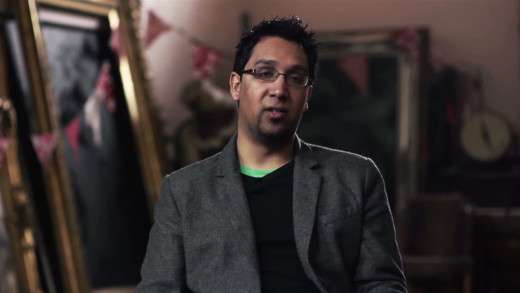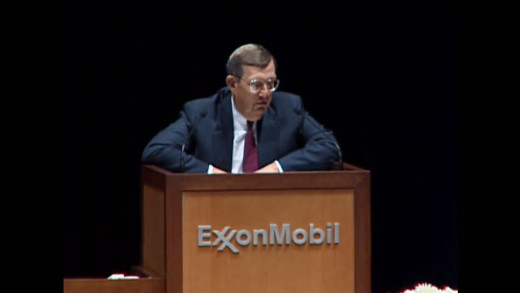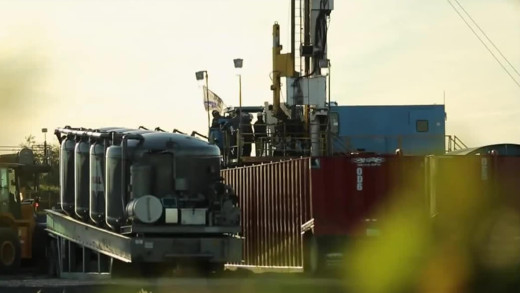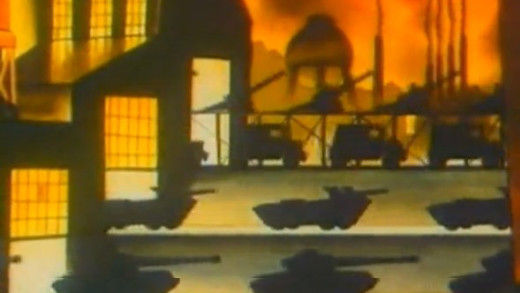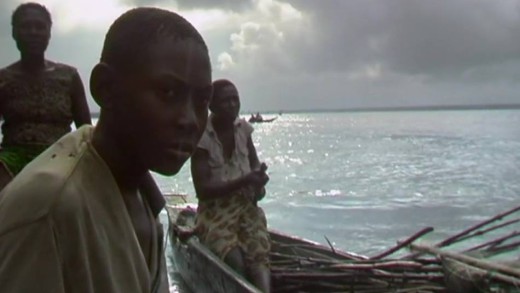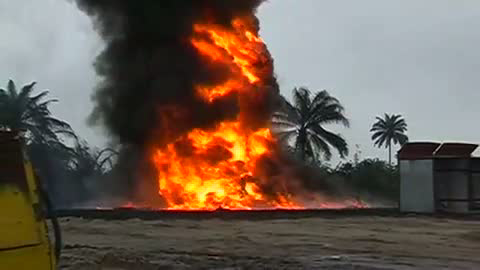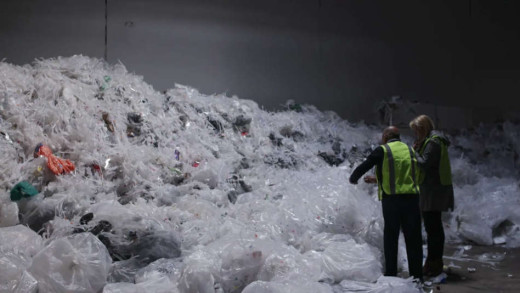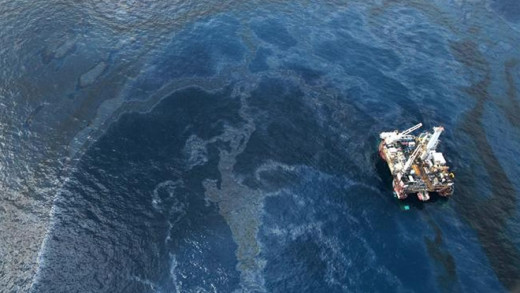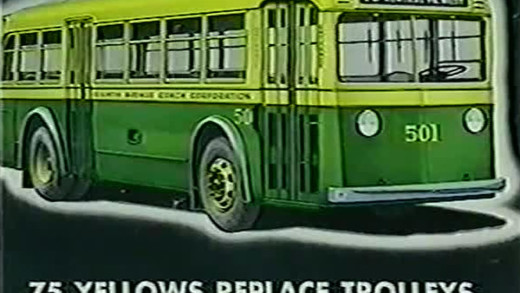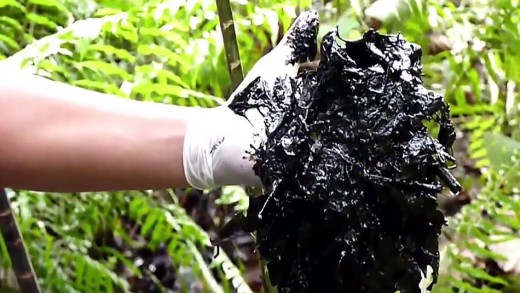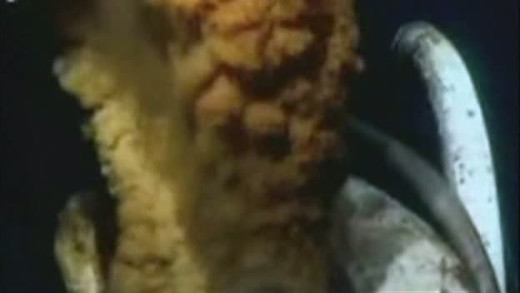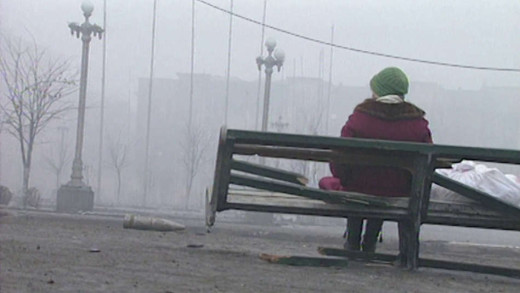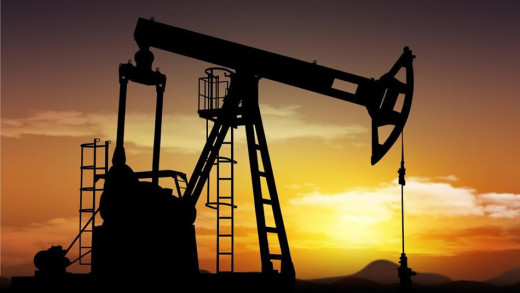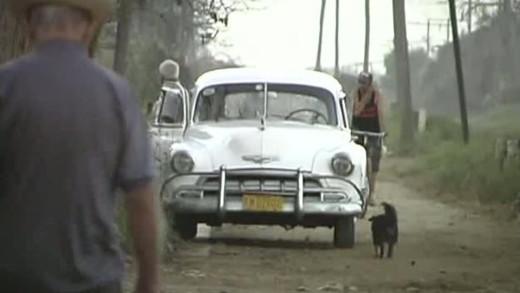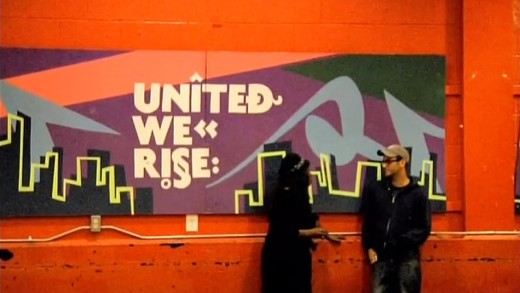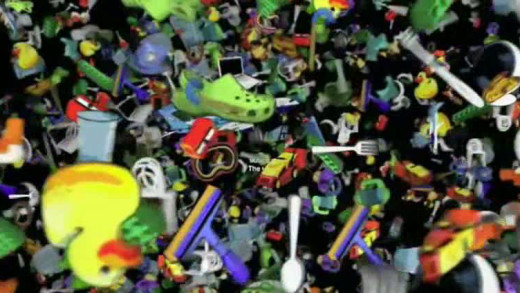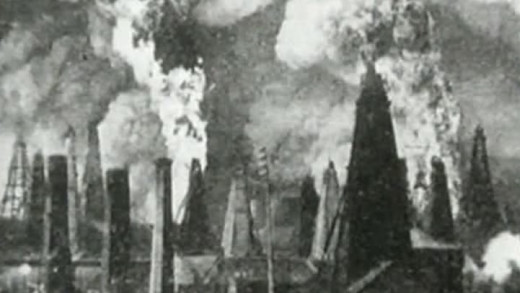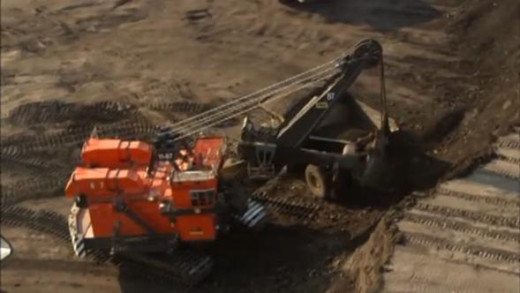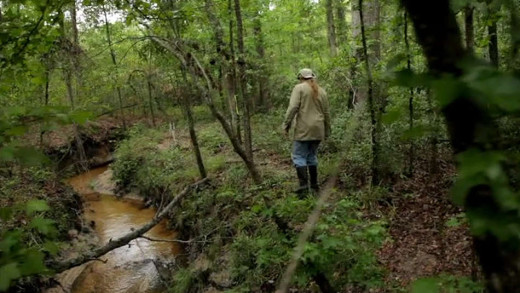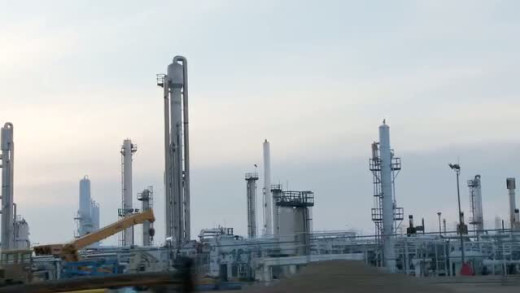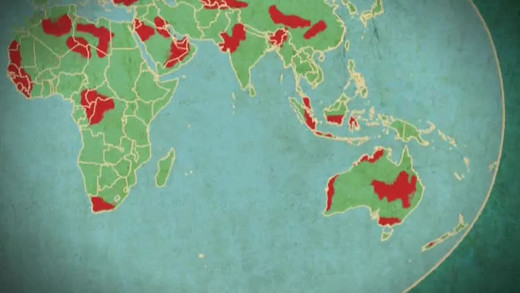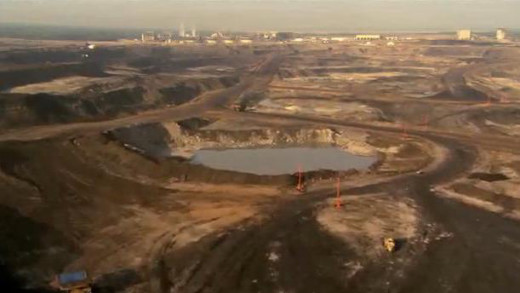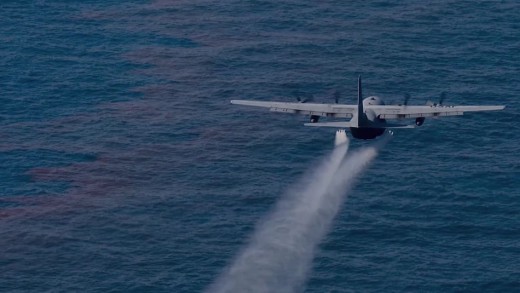The Crisis of Civilization draws on archive footage and essentially monologue by author Nafeez Mosaddeq Ahmed to detail how global problems like environmental collapse, financial crisis, peak energy, terrorism and food shortages are all symptoms of a single, failed global system...
The Power of Big Oil is a three-part series that investigates the decades-long failure to confront the threat of climate change and the role of the fossil fuel industry. The series presents a parade of former oil company scientists, lobbyists, and public relations strategists who lay bare how the biggest petroleum firm in the United States, Exxon, and then the broader petroleum industry globally, moved from attempting to understand the causes of a global heating to a concerted campaign to hide the making of an environmental catastrophe. Over three episodes--Denial, Doubt, Delay--the series documents the corporate cooptation of science, the manipulation of public opinion, and political figureheads that mirror conduct by other industries--from big tobacco to the pharmaceutical companies responsible for the opioid epidemic.
Fracking In America takes a look at the continuing instances of water contamination and environmental damage occurring throughout the United States as a result of hydraulic fracturing--an industrial process used to fracture rock in the search to exploit natural gas deposits. As the frantic effort to extract gas accelerates, the impact of fracking expands also, with increasing pressures on fresh water supplies, continuing threats to health and wider ecosystems...
What A Way To Go: Life At The End Of Empire covers the current situation facing humanity globally. It discusses issues such as peak oil, climate change, population overshoot and species extinction, as well as how this situation has developed...
Sweet Crude
Sweet Crude is the story of how large oil corporations such as Shell and Chevron have absolutely decimated the Niger Delta, but the people are fighting back. The film shows the human and environmental consequences of 50 years of oil extraction against an insurgency of people who, in the three years after the filmmakers met them as college students, became the young of the Movement for the Emancipation of the Niger Delta (MEND). The movement is born after series of non-violent protests, and what the corporations and colonisers don't understand is that these people will fight for their land and emancipation until the end. Sweet Crude is their story of survival and armed resistance against corrupt governments and rapacious corporate power, amongst a complicit and collusive mainstream media.
The Niger Delta is still an environmental disaster after more than fifty years of oil exploitation. One and a half million tons of crude oil has been spilled into the creeks, farms and forests so far. Natural gas contained in the crude oil is burnt off in gas flares which spread toxins, acid rain and destroy crops. Poison Fire documents the life of the locals in impoverished communities, creeks full of crude oil, devastated mangrove forests, wellheads leaking gas, all working to fight against oil giant Shell to at least stop the toxic gas flares...
Despite decades of environmental impacts and campaigning for bans and other regulations, the plastic industry continues to expand. From 1990 to 2010 alone, production of plastics more than doubled. Fracking has provided cheap natural gas which is also driving down the cost of making plastic. The United States is now one of the world's largest plastic producers, and industry is investing tens of billions of dollars in new plastic plants. By 2050, it's estimated that global production of plastic will triple. Alongside, the industry has pushed a greenwashing image of recycling to fend off negative public opinion, and sell more plastic. Plastic Wars examines how this has come to be, using industry documents and former insiders, and presents the urgency of the need for change, now more than ever.
On April 22, 2010 the Deepwater Horizon offshore drilling rig, run by oil giant BP, sunk into the Gulf of Mexico--creating the world's biggest and most catastrophic environmental crime in history. After over 750 million litres of crude oil and millions of litres of the chemical dispersant Corexit dumped into the sea, the disaster was deemed over and all damage repaired. This is bullshit however. Film-makers Josh and Rebecca Tickell travel to the Gulf of Mexico to document first-hand the extent of environmental and community damage, continuing many years after the explosion. Beginning by tracing BP’s origins and fingerprints across decades of US manipulation in Iran, The Big Fix assembles an indictment of this monumental disaster by unpacking the workings of the complex oligarchies that put pursuit of profit over all other ends...
Taken for a Ride details the conspiracy led by General Motors to buy up and dismantle public transport lines throughout the United States in the 1930s. Across the nation, tram and train tracks were torn up--sometimes overnight--and diesel buses placed on city streets. The highway lobby then pushed out a vast network of urban freeways that fuelled suburban development, increased auto dependence and elicited passionate opposition...
The oil industry giant Chevron began operating in Ecuador's Amazon rainforest in 1964, and by the time the corporation fled the area in 1992, their toxic footprint had brought about 1,700 times more damage than the infamous Exxon Valdez oil spill in the United States in 1989. Chevron vs. The Amazon visits the scene of this epic and enduring crime, to uncover the acts that have killed the riches of the world's tropical paradise. The Amazon is home to hundreds of thousands of unique species of plants, animals, insects, landscapes, as well as an equally diverse human population—all under severe and continued stress and threat. Chevron dumped 17 billion gallons of crude oil and 19 billions gallons of contaminated waste water into the Amazon. Prior to fleeing, they attempted to hide this by covering the areas with dirt or setting the toxic dumps on fire. This film shows the totality of these crimes, and how the land and its people have suffered from devastating impacts over the ensuing decades, as the first step to holding corporate criminals to account, for justice and the survival of the Amazon and its peoples.
One year after BP's Deepwater Horizon rig exploded spewed a massive 170 million gallons of oil into the Gulf of Mexico, BP claims victory -- that most of the oil is gone. Investigative journalist Greg Palast sets off to test this claim in person and digs into the history of BP and similar incidents. Revealed is the corporations collusion with government, its strong political influence worldwide, along with the massive ecological impact of the BP explosion, set to last for decades...
Since the late 1980s, BBC news crews have filmed all across the Soviet Union and Russia, but only a tiny portion of their footage was ever used for news reports. The rest was left unseen on tapes in Moscow. Filmmaker Adam Curtis obtains these tapes and uses them to chronicle the collapse of the Soviet Union, the rise of capitalist Russia and its oligarchs, and the effects of this on Russian people of all levels of society, leading to the rise to power of Vladimir Putin, and today's invasions of Ukraine. The films take you from inside the Kremlin, to the frozen mining cities in the Arctic circle, to tiny villages of the vast steppes of Russia, and the strange wars fought in the mountains and forests of the Caucasus.
The Secret of the Seven Sisters is a four-part series examining the rise of a powerful cartel of seven companies that control the world's oil supply. The 'seven sisters' comprises Anglo-Persian Oil Company (now BP); Gulf Oil, Standard Oil of California (SoCal) and Texaco (now Chevron); Royal Dutch Shell; Standard Oil of New Jersey (Esso) and Standard Oil Company of New York (Socony), (now ExxonMobil). Prior to the oil crisis of 1973, the Seven Sisters controlled around 85% of the world's petroleum reserves, but in recent decades the dominance of the companies and their successors has declined. This series is about the power of oil, the conspiracy of business, and the control that oil provides the few...
With the fall of the Soviet Union in 1990, Cuba's economy collapsed. Imports of oil were cut by more than half and food by 80 percent. The Power Of Community tells of the hardships and struggles as well as the response during the collapse, explaining how the country transitioned from a highly mechanised, industrial agricultural system to one using organic methods of farming and local, urban gardens...
How to Let Go of the World and Love All the Things Climate Can't Change travels the globe, from New York City to the Marshall Islands and China, to meet with people who are committed to reversing the tide of global warming. The film examines the intricately woven forces that threaten the stability of the climate and the lives of the world's inhabitants.
Plastic Planet is an up close and detailed examination of one of the most ubiquitous materials of our age, the plastic age. This controversial and fascinating material has found its way into every facet of our lives, literally. Plastic Planet takes us on a journey around the world, showing that plastics are a threat for human health and the ecosystems of the planet...
Why was the the electric vehicle made by General Motors destroyed in the late 1990s? Why did it receive only limited commercialisation despite being hugely popular? It was among the fastest, most efficient production cars ever built. It ran on electricity, produced no exhaust and catapulted American technology to the forefront of the automotive industry. The lucky few who drove it never wanted to give it up. So why did General Motors suddenly crush its fleet of EV-1 electric vehicles in the Arizona desert? Was it because of a lack of consumer confidence or conspiracy?
The Prize: The Epic Quest for Oil, Money, and Power is an 8-part series based on Daniel Yergin's book by the same name, that captures the panoramic history of the largest industry in the world and traces it's changing face over the decades. Each episode in the series focuses on an era of oil, from beginning to today; while examining the connections and ramifications of an industry that literally transformed global political and economic landscapes--while continuing to make its mark...
Dirty Oil
Dirty Oil looks into the strip-mined regions of Alberta, Canada, where the vast and toxic Tar Sands currently supply the United States with the majority of its oil. Through the eyes of corporate officials, politicians, scientists, doctors, environmentalists and communities directly impacted by the largest industrial project on the planet today, Dirty Oil travels to both sides of Canada to document the irreversible toll the tar sands take, further fuelled by the western world's addiction to oil...
Above All Else
Above All Else is an intimate portrait of a group of activists and landowners in East Texas, United States, who undertook a series of direct actions and put their bodies in the way to stop construction of the Keystone pipeline in 2012. The film follows David Daniel, a quiet, affable carpenter, whose backyard became the epicenter of a tree-sit that physically blocked the path of the controversial pipeline. This was the birthplace of the Tar Sands Blockade, an activist group that would go on to oppose the pipeline's construction all along its route. David's stance against Keystone brought together an unlikely coalition of allies, from Texan farmers to student environmentalists to fire-cracker great-grandmothers like Eleanor Fairchild. Above All Else is the story of David and his allies, their struggles, and what happened when they stood in the way of the most powerful industry in the world.
The Sky Is Pink
As an emergency short film following up Gasland, film maker Josh Fox returns to the urgent crisis of drilling and fracking throughout the United States and the world. Induced hydraulic fracturing or 'hydrofracking', commonly just known as 'fracking', is a technique used to release petroleum, natural gas, shale gas, tight gas, coal seam gas, and other substances for extraction. The Sky Is Pink returns to the issues of water contamination and the cataclysmic environmental impacts caused by fracking to show again first hand evidence of widespread ecological damage and the threat of more to come unless we stop it...
The film is a video essay by Professor Albert Bartlett essentially serving as an introduction to the concept of steady growth and doubling time, by taking us through the impacts and consequences of exponential growth on a finite planet. By making good observations of this impossible growth as applied to fossil-fuel consumption, population and the endless growth of which the global economy requires, this presentation gives us the basic tools to fundamentally understand that we've got a real problem on our hands.
Gasland Part II
Gasland Part II follows on three years later, to continue documenting how the stakes have been raised on all sides in one of the most devastating environmental issues rapidly spreading the globe. This sequel further enriches the argument that the gas industry's portrayal of natural gas as a clean and safe alternative to oil is a lie, where in fact fracked wells inevitably leak over time, and vent exuberantly more potent greenhouse gasses such as methane in cumulative effect, not to mention the continued string of cases of severe water contamination across the United States and even cases as far away as Australia. Gasland Part II follows deeper into these happenings, revealing yet more of an entrenched corporate collusion in the pursuit of exploiting dwindling 'natural resources'...
h2Oil
Canada is now the biggest supplier of oil to the United States, thanks to the Alberta tar sands—a controversial billion-dollar project to extract crude oil from bitumen sands, using a very toxic process that has generated international cause for concern. Four barrels of glacier-fed spring water are used to process each barrel of oil, along with vast amounts of electricity. The waste water is dumped, filled with carcinogens and other chemicals, into leaky tailings ponds so huge that the piles can be seen from space. Downstream, people and communities are already paying the price with contaminated water supplies and clusters of rare cancers. Evidence mounts for industry and government cover-ups. In a time when wars are fought over dwindling oil and a crisis looms over access to fresh water, which will we allow to turn out to be more precious to us?
Pretty Slick
Pretty Slick reveals the untold story of BP's coverup following the 2010 Deepwater Horizon oil explosion in the Gulf of Mexico. The explosion is known as one of the largest environmental catastrophes in the history of the United States, but what is not well-known is that BP, along with government approval, used toxic chemicals to sink the oil in the water rather than clean it up, using a controversial chemical dispersant called Corexit. Because of this, it is estimated that approximately 75% of the oil, or over 150 million gallons, is still unaccounted for. When filmmaker James Fox learned of this, he began a three year investigation to find out about the dispersant use and its coverup. Pretty Slick reveals how public safety and environmental health took a backseat to restoring the economy, and along the way exposes the collusion between big oil and the United States government in these happenings.
